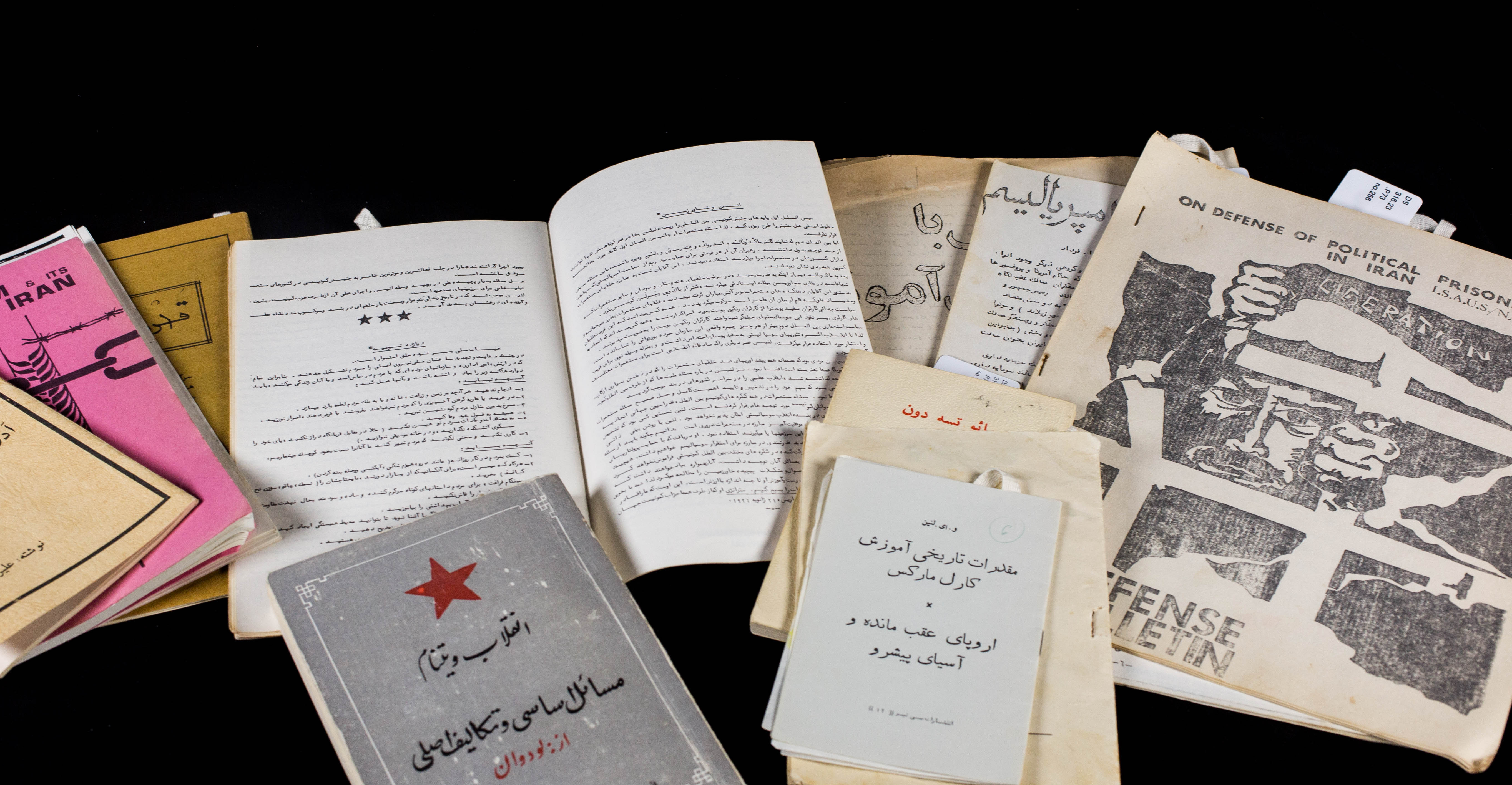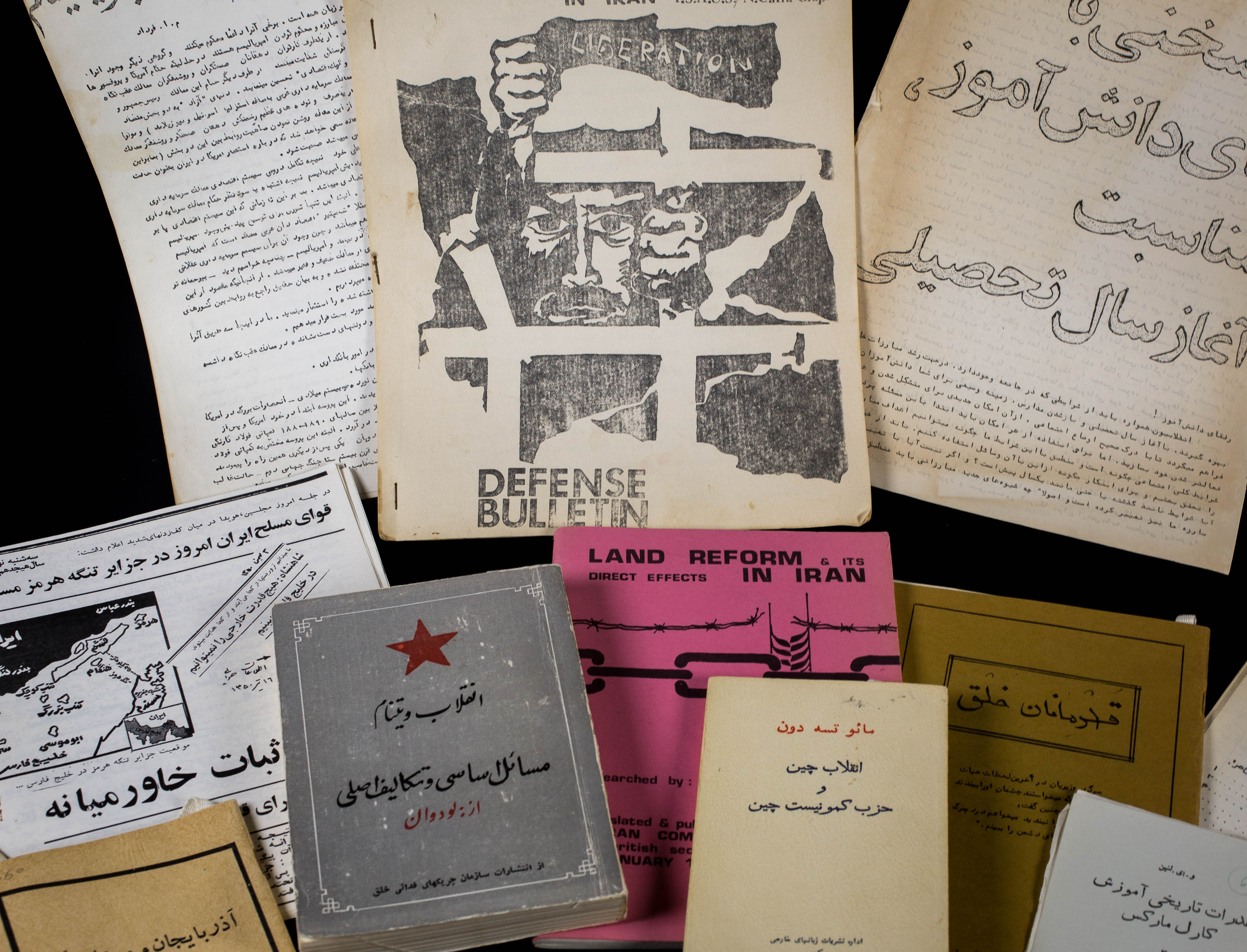The Caspian World
by Kayhan Nejad
Cornell University Press
(August 15, 2025)
The Caspian World
by Kayhan Nejad
Cornell University Press
(August 15, 2025)
Coming of Age in Iran: Poverty and the Struggle for Dignity
by Manata Hashemi
New York University Press (May 12, 2020)
Exile and the Nation: The Parsi Community of India and the Making of Modern Iran
by Afshin Marashi
University of Texas Press (June 8, 2020)
Children in Crisis: Ethnographic Studies in International Contexts
Edited by Manata Hashemi and Martín Sánchez-Jankowski.
Routledge; Reprint edition (September 18, 2015)
Rethinking Iranian Nationalism and Modernity
Edited by Afshin Marashi and Kamran Scot Aghaie
University of Texas Press; Reprint edition (May 1, 2015)
Nationalizing Iran: Culture, Power, and the State, 1870-1940
by Afshin Marashi
University of Washington Press (February 14, 2008)
Vahid Abedini in Ham-Mihan, "On the Edge of Loneliness"
Vahid Abedini and Sina Rahimpour in Shargh Daily, "The Politics of Reviving Politics"
Vahid Abedini in Agahi Now, "Study of the Generational Divide in U.S. Politics"
Vahid Abedini in Shargh Daily, "Iran Called Him"
Vahid Abedini and Sina Rahimpour in Shargh Annual Volume, "Representation Crisis"
Manata Hashemi in Journal of Contemporary Ethnography, " 'More Money, More Problems': Poverty, Recognition, and the Reframing of Success in Iran"
Manata Hashemi in Ethnography, "Sacrificial Heroes: Masculinity, Class, and Wastepicking in Iran"
Manata Hashemi in The Oklahoman, "Here's what it's like to live in the shadow of war"
Afshin Marashi edited a special issue of Iranian Studies, "Parsis and Iranians in the Modern Period"
Afshin Marashi in Iranian Studies, “Rich Fields in Persia”: Parsi Capital and the Origins of Economic Development in Pahlavi Iran, 1925–1941"
Afshin Marashi in Andisheh-ye Pouya, "Irāni-budan va josteju-ye modāvem-e hoviyyat-e melli: pāsokh be chand porsesh.” [Iranianness and the continuous search for national identity: reply to a few questions]
Afshin Marashi, Persian translation of Nationalizing Iran: Culture, Power, and the State 1870-1940, Melli-sāzi-ye Irān: farhang, qodrat, va dowlat, (1250-1320 h.s.), trans. Shahrbanu Saremi (Tehran: Qoqnus Press, 2025)
Afshin Marashi in Iranian Studies, “As Seen from Bombay: An Iranian Zoroastrian Photo Album from the 1930s"
Afshin Marashi in Encyclopedia of Islam, "Printing in Iran"
Kayhan Nejad in Iranian Studies, Russian Officialdom and the Iranian Constitutional Revolution, 1905-1911
Kayhan Nejad in Kritika, "North Caucasian Confederal Nationalism and the Abkhaz-Georgian Conflict"
Kayhan Nejad in Slavic Review, "Provincial Revolution and Regional Anti-Colonialism: The Soviets in Iran, 1920–1921"
Mina Raminsabet in World Literature Today, "Water: Haleh Liza Gafori's Rumi for Our Times"
Mina Raminsabet in World Literature Today, "One Hundred Poems from These Hundred Years: A Selection of Twentieth-Century Persian Poetry"

From the Faculty Advisors:
DĀNESH: The OU Undergraduate Journal of Iranian Studies. is a peer-reviewed undergraduate journal, edited by a team of students at the University of Oklahoma. The journal is published under the auspices of the University of Oklahoma’s Farzaneh Family Center for Iranian and Persian Gulf Studies and the OU David L. Boren College of International Studies.
Since its founding in 2016, DĀNESH has been dedicated to highlighting the research of a growing undergraduate program in Iranian Studies at the University of Oklahoma.
The journal is available in both digital and print editions. The open access digital edition is available via the commons@shareok archiving service. To view back issues, please click on the image above or follow the DĀNESH link to the online repository. A limited numbers of print editions are also available at the Farzaneh Center’s Iranian Studies Library.
The name of the journal, DĀNESH, comes from the Persian word meaning knowledge, learning, and wisdom. We believe this is a fitting name for a journal that seeks to foster deep and compassionate understanding of one of the world’s most culturally rich and historically complex civilizations.
For more information about submitting to the journal, or joining its editorial team, please contact the faculty advisors, Afshin Marashi (amarashi@ou.edu) and Manata Hashemi (hashemi@ou.edu).

The University of Oklahoma has acquired a substantial collection of primary source material relating to the 1979 Iranian revolution. The collection comprises approximately 300 items, mostly consisting of pamphlets and short political tracts produced by intellectuals, student activists, and political parties working to overthrow the Pahlavi monarchy. Much of the material was printed and circulated by leftist and Islamist opposition groups residing in Europe and North American during the 1960s and 1970s. The bulk of the material is in Persian. Some items in the collection are also in English, French, and Arabic. Among the Persian language sources are numerous translations from material originally in Russian, German, French, Arabic, Chinese, and Vietnamese.
Collectively, the material illustrates the global currents of thought and politics that shaped much of the anti-Shah activism in the years preceding the 1979 revolution. While many of the items in this collection are unique, the “OU Pre-1979 Revolution Iranian Political Pamphlet Collection” is intended to supplement the substantial collections housed at other libraries and research institutions, such as the “Iranian Political Opposition Literature Collection” at the Hoover Institution in Stanford, California, the University of Manchester’s “Nashriyah: digital Iranian history” archive, and material held at Amsterdam’s International Institute for Social History. Smaller collections and individual items may also be found at other major research libraries.
See the research guide here for more information regarding this collection.
To arrange access to the collection, which requires advance retrieval from an off-campus site, please click here to contact University Libraries.

